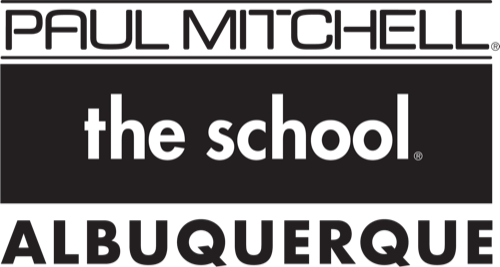INSTRUCTOR COURSE DESCRIPTION
Significant reading, writing and studying will occur during the educational experience. You must have a sufficient understanding of the English language in order to successfully complete the program. All courses are taught in English.
Instructor: Standard Occupational Classification (SOC) 25-1194.00
Classification of Instructional Programs (CIP) Code 12.0413
The curriculum involves 1000 hours for student instructors to satisfy New Mexico state requirements. The course educates prospective cosmetology teachers to address the needs of students in the classroom and the clinic floor. Prospective teachers learn to utilize a system of forward-focused thinking and front-end coaching. By learning the methods of teaching cosmetology, the prospective teachers learn to engage students in the learning process and stimulate the discovery process with visuals, music, and/or hands-on activities.
*Students are prepared for an entry level instructor.
This course is taught in English. Textbooks and Course Materials are only offered in the English Language.
INSTRUCTOR COURSE OVERVIEW
Course Hours: 1000 clock hours
The instructor course is divided into three designations: Theory, Course Development and Lesson Planning, and Student Teaching.
INSTRUCTOR COURSE OUTLINE
Your time in the Paul Mitchell the School Albuquerque instructor program course will be divided into three designations:
- Theory: this section focuses on learning by observing classroom and clinic classroom instruction.
- Course Development and Lesson Planning: These classes focus on the theory of teaching and how to create lesson plans.
- Student Teaching: You will learn to write lesson plans and do actual teaching from your lesson plans. There will be a practical teaching evaluation of your teaching skills.
INSTRUCTOR COURSE SUBJECTS
The instructional program of Paul Mitchell the School Albuquerque meets or exceeds the state requirements:
| Subjects | Hours |
|---|---|
|
1. THEORY - CLASSROOM INSTRUCTION |
75 |
| 2. COURSE DEVELOPMENT AND LESSON PLANNING Planning, Analysis, Implementation, Benefits, Outlines, Examples of Lesson Plans, Components of Effective Lesson Plans, Principles of Teaching, Learning and Preparing Lesson Plans, Course Review. |
100 |
| 3. TEACHING METHODS Preparation, Presentation Techniques, Application, Testing, Lecture and Workbooks, Demonstrations, Return Demonstrations, Discussion, Question and Answer, Projects, Field Trips. |
100 |
| 4. TEACHING AIDS (Use in classroom student teaching) Films or Videos, Charts, Manikins, Reference Materials, Chalkboard, Overhead Projectors and Transparencies |
50 |
| 5. THEORY TEACHING AND CLASSROOM MANAGEMENT Independent Classroom Instructing, Administrative Responsibilities, Records and Reports Management, Safety Measures, Classroom Conditions and Maintenance, Class Supervision, Control, Classroom Problems and Solutions, Academic Advising. |
200 |
| 6. TESTING AND STUDENT EVALUATION Assessment or Measurement of Student Ability/Achievements/Learning, Diagnosis of Student Weaknesses, Student Motivation for Study and Learning, Oral and Written Testing, Evaluation of Overall Progress, Development and Use of Testing/Measurement Instruments. |
50 |
| 7. LABORATORY SUPERVISION Independent clinic supervision; client communications/reception desk, inventory control, effective dispensary procedures, supervision of clinic sanitation/client safety, and technical skills ability. |
300 |
| 8. MISCELLANEOUS Fundamentals of business management; to be applied by instructor to strengthen student performance in curriculum areas; or for supervised field trips and other course related training. |
125 |
| TOTAL CLOCK HOURS | 1000 |
The institution offers employment assistance to help graduates’ efforts to secure education-related employment that includes, but is not limited to training in professionalism, resume’ development, job interview preparation and job search skills.
INSTRUCTOR COURSE PROGRAM TESTING AND GRADING PROCEDURE
The following tests and grading procedures are incorporated during the student’s 1000-hour course:
- Students must receive a grade of 80% or higher on each assigned theory exam. Theory exams cover a review of Milady’s Master Educator Student Course Book.
INSTRUCTOR COURSE INSTRUCTIONAL TECHNIQUES AND METHODS
The 1000 hour instructor program are provided through a sequential set of learning steps which address specific tasks necessary for State Board preparation, graduation and job entry level skills. Clinic equipment, implements and products are comparable to those used in the industry. Each student will receive instruction that relates to the performance of useful, creative and productive career oriented activities. The course is presented through well-developed lesson plans that reflect the latest educational methods. Subjects are presented by means of lecture, demonstration, and student participation. Audio-visual aids, guest speakers, field trips, and other related learning methods are used in the course.
